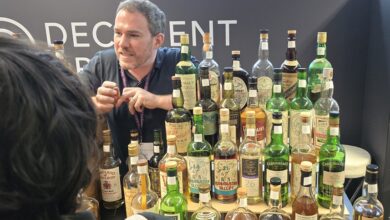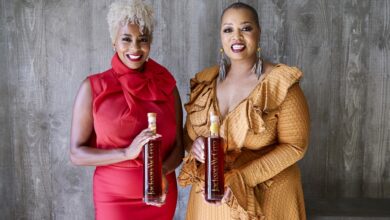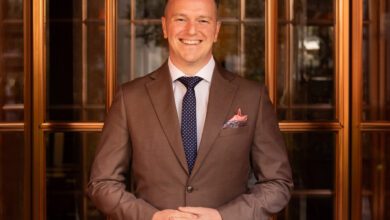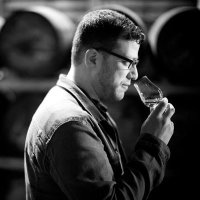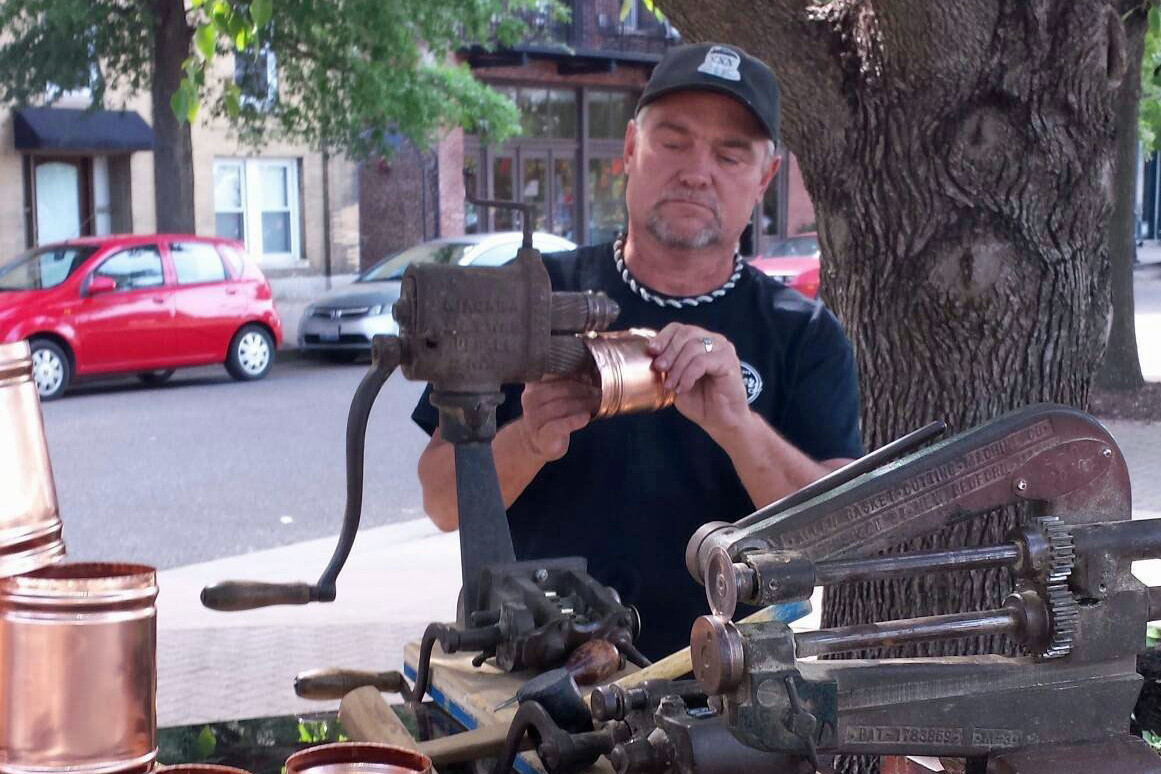Maggie Campbell Talks Whiskey
By Kurt Maitland

(Credit: Maggie Campbell)
Late in 2013, a friend of mine who reviews other spirits (yes, they do exist) invited me to a tasting at the Nat Sherman’s Flagship shop in Midtown Manhattan. This tasting was for Privateer Rum. Now before you think I’ve lost my mind or come off of the whiskey reservation, this post is more about their amazing Master Distiller, Maggie Campbell and how her love of “brown spirits” led her to her current position and how that love continues to influence what she does today.
Maggie has done a lot in what seems like a few years (makes me feel a little guilty or a little lazy on my end) from founding the Denver Brewer’s League, to winning the Denver Brewster’s Woman Brewing Competition with her own home still, to attending Chicago’s Sieble Institute in for their first ever course on Craft Distillation and Technologies, which was followed up by becoming the Assistant Distiller at Germain-Robin in California.
But enough from me, let’s have Maggie tell you her story
KM: How did you get into the spirits/whiskey business?
MC: When I was 20 I was in Oban waiting for a ferry and stumbled upon the distillery. It was the first time I thought it was something I could do and I fell in love with Scotch. I came back to the states and entered Sommelier school and learned about the chemistry, beauty and flaws of alcohol and fermentation. I was working in a boutique wine, spirits, and beer shop in Denver when I was 23 and people on the staff knew very little about spirits so I decided I would become the expert. I knocked on the doors of my local distilleries (mostly whiskey in Colorado) and breweries (and subsequently founded the Denver Brewer’s League) and started emailing distillers all over the country. I fell in love and enrolled in Siebel’s Craft Distillation and Technology course and was hired as Assistant Distiller at Germain-Robin because I had knowledge on both spirits and wine.
KM: What are some of your favorite whiskeys/bourbons (and why)?
MC: Leopold Brother’s Bourbon and Maryland Rye: their fermentation is so luscious, complex and rich- you can really taste the grain and complexity of their yeast (Open top wood fermentors). I love that they use full size casks to age and don’t get hung up on age statements- that way the oak complements the flavor instead of covering the flavors of that amazing fermentation!
There is a new, yet unnamed, release coming this spring of a new whiskey brand from Jake Norris (formerly of Stranahan’s). I don’t know how many of the beans I may spill but the cask samples were some of the best I’ve ever had (again full sized 53 gallon casks). Is was heavenly and the most exciting spirit I’ve had in 2013.
I love scotch, especially elegant Islays.
My everyday Bourbon is Four Roses Yellow Label. At Privateer when we order used casks, we explicitly order Four Roses casks, [and] those guys humble me. I know the casks we will get have been well cared for and the use of their different recipes means we get a range of flavors when it comes to the differences between the barrels.
KM: What can you tell us about Low Gap Whiskeys and working with Crispin Cain?
MC: Crispin is wonderful, he really is a mystical artist. Tamar, his partner and his son are all great people who work on the spirit too – a real family team. I was mostly working on GR so my operations were set apart from theirs but Crispin would always find time to teach me little tips and tricks and let me talk through fermentation ideas and we always shared a love of whiskey. I have to say he really shared with me some very original ideas I have seen no where else, he is a true individual who cares deeply about what he does. There is no cookie cutter style to his spirit. As a developing distiller when I would struggle or was having a tough time he was the person I would go to at GR and he was always encouraging. When I think back to that time and how it has affected me as a distiller today I am grateful for getting time with him and getting to know Hubert (who was no longer working shifts at the distillery).

(Credit: Maggie Campbell)
KM: How did you get from your love of Scotch and crafting Brandy to Privateer Rum?
MC: I had left GR and gone back to the wine world when I got a call in February of 2012 from Hubert Germain-Robin. First let me explain, Hubert is a genius and a really amazing, genuine person and when he says something you listen. He had been calling me and catching up since I left GR and always encouraging me to get back into distilling. I had entertained some positions but something I share with Hubert is very strict convictions and dedication to what is best for the spirit. A lot of distilleries were not the right fit for me because of this. I wasn’t sure I was going to get back to distilling…ever.
So, back to February 2012, Hubert calls and says I should talk to the guys who make rum. I will admit I was surprised. I was a whiskey person in my mind, not a rum person. I had seen all the silly stereotypes of captain pirate so-and-so flavored, sweetened, and colored junk for college kids. I didn’t know why Hubert was calling me for this. Well, after ten minutes on the phone with Andrew Cabot everything made perfect sense. These guys were dedicated to making rum as a fine spirit. Doing what they thought was best, not what was dogma. Pure, sipping, amazing rum without coloring, sweetening, or artificial age flavor. They were willing to take the risk of not being ‘traditional’ and making the hard choices about what is truly best for the rum first and foremost, not what was easiest or cheapest. I could use my fine spirits background and apply it to rum. Hilariously now, if I ever went back to whiskey, what I’ve learned about rum styles would totally change the way I would make whiskey.
KM: What did you learn working at Germaine-Robin and with Crispin Cain that you are bringing to the table as Privateer Rum’s Master Distiller?
MC: Hubert’s philosophy that every detail matters, that’s been a corner stone of how I try to run the Privateer production team. Andrew Cabot and I will never say ‘good enough’. When you have to utter those words something has gone wrong. That’s a very Hubert trait.
Crispin inspires me to be genuine, patient and contemplative. He is proud of his work and it rightfully shows. What this has taught me about myself is that if I believe in what I do I can always take in criticism and see what I need to learn in it (instead of a bad review swaying me to change my style). It I don’t trust myself others can shake me from doing what’s right for me. When someone don’t trust themselves it’s a sign they haven’t done the hard work and research it takes to make a decision their proud of. You should always look to learn and be better, but you should also being doing the very best that you know how to do in that moment. That’s where pride comes from.

